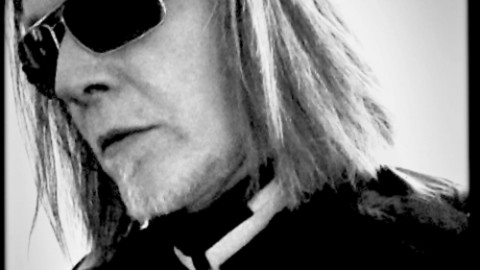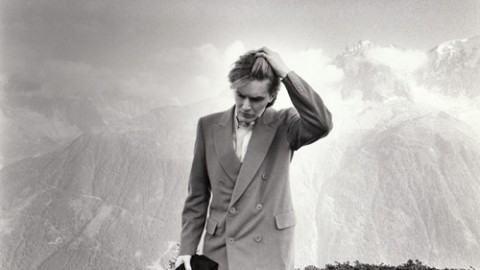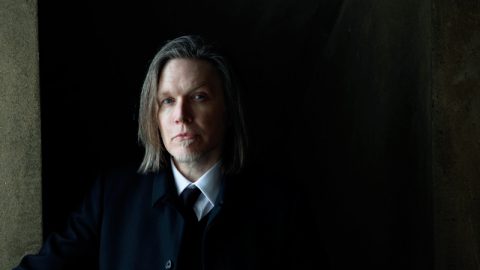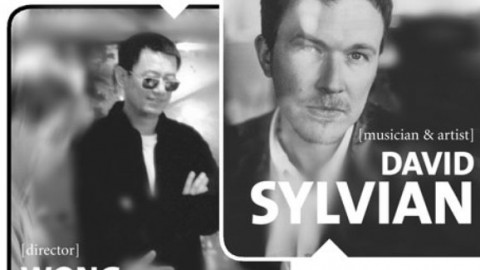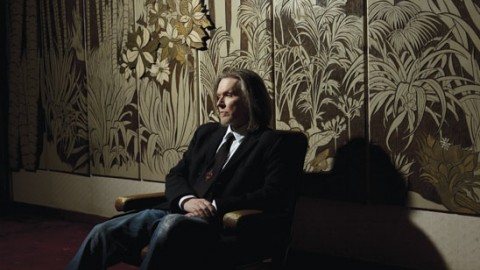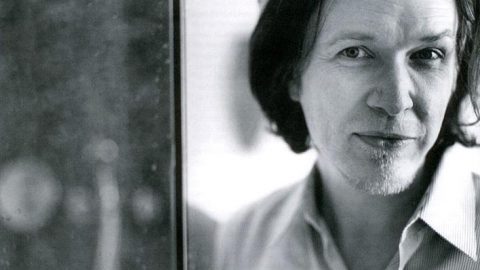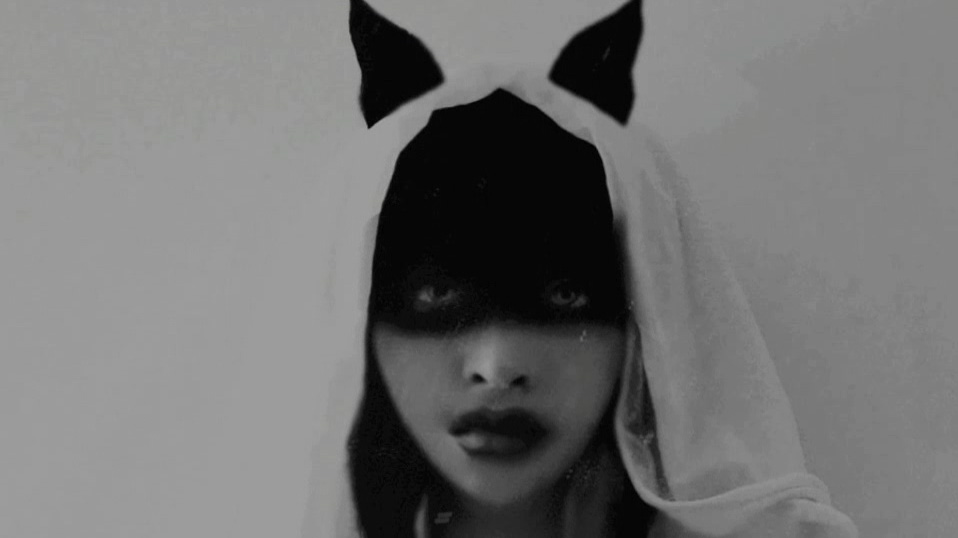
Flux magazine Q+A, October 2010
Your latest compilation Sleepwalkers is an album of collaborations. Do you find working with another person easy? Does not
having total control over the evolution of a song bother you?
Not if you’ve chosen your collaborators well. With most I do have final say on the direction a piece might ultimately take but there are individuals I’ve been working with for a long time now and with those you tend to know what they’re capable of producing and consequently you’re able to be a little more hands off. Having said that even when working with a long established partner such as Ryuichi, there might be a number of files exchanged, false starts, before we reach common ground. The genesis for a piece such as ‘World Citizen’ might be something as simple as the loop piano which is the basis for the track and which is what I wrote and recorded the vocals to so, again, the structure becomes determined by the architecture of the vocal melody, its duration etc. and Ryuichi then arranges or orchestrates the work around it.
But I have, and continue to, produce my own material so there’s no need to want to control the outcome of every collaborative effort. Collaboration, when it’s right is a challenge and a delight, a real conversation, a generous give and take with, by and large, everyone involved collectively satisfied with the outcome.
Many artists seem to be very reluctant to reassess their past work. When its done its done. Someone like Scott Walker, Ive read, will record an album and then never listen to it again. You however seem to enjoy remixing and tinkering and returning to your work, the new Sleepwalkers album features a host of remixes and youve just announced Manafon is to be radically re-worked with Dai Fujikura. Are you someone who struggles to be satisfied with their work?
Actually, once I’ve personally finished with the work I consider it done, I have no desire to look back, rarely a desire to even perform the work so, in that respect, I share more in common with Scott than maybe apparent. However, where the solo work is concerned it can, very occasionally, be interesting to get someone else’s take on the material. This doesn’t take extensive involvement on my part other than to select the artists involved, give occasional direction and compile the work. I didn’t have plans to rework Manafon, it was Dai that requested if he might have a crack at one or two of the pieces and, as these things have a habit of doing, it’s evolved into something ‘other’. Also, the remix work is generally completed while the original is still in my system. Not a vast amount of time lapses between the completion of the original and starting on interpretations. In fact Dai had already made a start on his interpretations before I’d completed the mixing process of the original. As for the collaborative work, if I’m ever afforded the opportunity to remix the work to my liking, and this might only mean very subtle changes from the original, I tend to take it. I can then leave it behind me knowing I gave it my best.
The sound of Manafon is very sparse and brittle, your voice is often the only line of melody, with the music being improvised. Is your re-working of this album with Dai an attempt to make the work more accessible? Is the accessibility of music to the listener something that is important to you? Or do you believe that it is the responsibility of the listener to work to understand, if the meaning and sensibility of a song is not presented sugar coated in rich melody, but is hidden deeper? Or is it the responsibility of the singer to satisfy his audience?
It’s the responsibility of the artist to be true to the work whilst at the same time attempting to make it as accessible, as comprehensible, as one can. Depending on the nature of the work there’s sometimes only so much you can do regarding its accessibility. With both Blemish and Manafon I was moving into uncharted waters therefore it wasn’t going to be easy for the general audience to accompany me all the way and I was obviously aware of that fact while the work was being created. To have attempted to have made the material anymore accessible would’ve been to dilute the material’s purpose and potency but, I don’t believe this marks a disrespect for the listening audience, on the contrary, it’s a attempt to offer something of significance. It’s relatively easy to repeat the past, it’s a far harder, more heartfelt effort, to imagine the future.
Working with Orchestration, fleshing out the melodic content inherent in the vocal lines, tends to make the compositions more accessible, yes. People tend to have a more immediate access to, and appreciation for, the melodies etc. But Dai is a fascinatingly original and protean composer, so whilst the work might ultimately be more accessible, it’ll lose none of its complexity, in fact it seems to take on a richer complexity but, to Dai’s credit, that doesn’t hinder the immediacy of the finished piece. We’re working counter to my original intentions for the compositions in a similar way that my vocal contributions on the original worked counter to the intentions of the improvisations.
Are you ever worried that an album like Manafon is simply too dense, two impenetrable for your audience. Do you ever think well maybe Ive gone too far with this one, maybe I should offer something more conventional out of fear of being alienating.
I simply do whatever it is I’m driven to at the time of creating a work. My desire is to communicate not alienate but I can’t pander to the taste of one particular audience or a particular faction of that audience. This would only end in the failure of both the artistic and commercial merits of the material.
If an audience thinks I’ve gone too far and refuse to believe in what I’m producing as relevant or worth the effort, I’ll not attempt to persuade them otherwise, but I’ll continue to give everything of myself to the material regardless until I have to shut down the computer, put the guitar in the case for the last time and start looking at the want ads in the local paper. I’ve not divorced myself from more accessible work, as I hope the compilation indicates, and there’s no reason to believe that later solo works will move increasingly left of field. But I do choose to follow the path in which my instincts lead me. I have to trust in them as there’s nothing else I can rely on.
Was Dead Bees on a Cake a turning point for you? Your solo work since has been in a completely different vein, its almost as if you have put the idea of the pop song to bed and moved on to higher pastures?
Dead Bees was something like a summation of all the solo material that went before it. I knew when I’d finished it I wouldn’t be returning to quite the same waters again but I had no idea what that meant at the time in terms of direction. Blemish was the turning point as it gave me an entirely new process with which to work which is something of a gift at this stage in life. It’s a mistake to look at the last two solo albums and believe that this is the only kind of material the process is capable of producing as it can potentially produce a wide range of results. Having said that I have returned to more traditional forms of songwriting of late because it felt fresh for me to do so. I won’t discard one process for the sake of another. I like having the luxury of choice in that respect. I do love the notion of the pop song, the limitations and challenges it imposes etc. but this is generally the territory of the young or, increasingly, the craftsman, the professional songwriters and producers. Older generations of artists should clear the path, get out of the way and create new territories for themselves, stop attempting to repeat previous career highs. It would, in my opinion, make for a more inventive and varied contribution to the world of song. Then again, Money for All, Wonderful world, to name but two, are pop songs written within the last five years or so… there’s really very few parameters that define what a pop song can and can’t be, after all songs such as Ghosts and Oh Superman were top five material and, in essence, the pop song is a seductive proposition.. no wonder people return to these forms again and again.
How did you go about creating the sound heard on Blemish and Manafon? What were your influences? Blemish seems to have been created on a kind of Miles Davis, improvise and see what happens basis, was Derek Bailey in particular and his free improvisation crucial to this? And how was this developed on Manafon?
I think it was a combination of my wanting to create something with an urgency to it, that would be rapidly completed and left in its natural state, rather than producing something over deliberated and refined. We’d started work on what was to become ‘snow borne sorrow’ and the speed of production was reliably slow and, due to my emotional state, I knew this process wasn’t going to cut it for me at that moment in time. There was this sense of trauma that needed addressing, that wanted out, so we took six weeks away from that project and I started recording Blemish. I couldn’t tell you who or what was crucial in terms of influence outside of the circumstances of my public and private lives. It was part of a personal evolution whose time had come, where things would shift for me in a quietly dramatic way. I knew Derek bore some relation to the material because his was the only music I could listen to leading up to the recording itself. At that time I didn’t know how I was going to approach the work or what it might sound like so it was not a conscious absorbing of his influence or anything obvious of that nature. It was simply an intuited connection. Two thirds of the way into recording Blemish I felt I needed a counterpoint to my own approach to guitar improvisation and Derek was the first to come to mind. No one else was considered.
I felt my response to Derek’s contribution had worked well enough that the desire arose to attempt work, in a similar fashion, with larger ensembles. To be honest, it was a slightly unnerving proposition to enter a given situation with some of the best in their field with nothing concrete to offer but my assurance, guidance and intuition. Mercifully some, if not all, were familiar enough with Blemish to allow them to give me the benefit of the doubt. All were open minded and generous in their willingness to participate, give of themselves, and in allowing me to do as I wished with the resulting recordings. So, once I had the material in hand, the process of responding to it was remarkably similar to how I’d worked on Blemish, particularly where Derek was concerned, which was a concentrated process of automatic writing and recording executed within a matter of hours. There might’ve been a 12 month delay between the recording of the music and my response to it but it was, nevertheless, what came to mind in the moment I sat with it for the first time, based on what was suggested melodically and where that led me lyrically although this would also be heavily influenced by the subject matter I knew needed addressing and my state of mind at the time. Essentially, despite the seemingly random nature of the entire enterprise, I had a sense of what it was I was looking for and, over time and through active engagement, worked out how to go about accomplishing my goals.
Your complete artistic revolution on Blemish was also twinned with the breakdown of your marriage, as a particularly private person was it difficult to delve so deep into your emotional state and then put those songs up for public consumption? Did you feel overexposed? I would imagine that as an artist, the only way through a situation like that would be self-expression, but was there a part of you which wanted to keep the results of that self-expression private? If so what ultimately persuaded you to put the record out?
When I was working on the material I wasn’t thinking about the public’s reception of it or the degree to which I might be exposing intimate aspects of my life. Despite the themes that drive the material, I found myself excited by what I was hearing at the end of any given day in that it sounded unlike anything I’d produced until that time, unlike anything I heard before. As far as the content goes; I was in an emotionally fragile state due to the breakdown of my marriage, I used the emotions that I experienced at the time to push further into the darker recesses of my own mind to see how far I could go, to see what I’d find there and if and how I could give it voice. They weren’t safe places to explore in ‘life’ but in the work I was able to experience them without any negative repercussions for myself and those around me.
To make it clear, while the emotions that surrounded the breakdown of the marriage were obviously the impetus for the work, I went a lot further internally with those when writing. It remains a portrait of someone in crisis but I didn’t feel I was exposing anyone but myself in the work. Did I feel overexposed? Yes, most certainly, but if I worried about such things or tried to second guess myself in that regard I could do what it is I do. I’d undercut any potential value the songs might have.
There was recently a release of some of the work you wrote and recorded with your former wife Ingrid Chavez, Little Girls With 99 Lives. Its a very beautiful and fragile collection of work. Would you say there is a different energy, a more productive creative atmosphere when you are recording music with a person you are in love with? Can that be captured in the music, the connection between two people, in the same way that Blemish captures the heartbreak when that connection breaks down?
I think that depends on the individuals in question. Ingrid and I didn’t happen to have a productive working relationship. There’s multiple reasons for this and I’d prefer Ingrid explain rather than I, but it comes down to a chemistry of sorts that might work in some aspects of a shared life but not in others. Ingrid’s really creative under pressure, all-cards-on-the-table, all-hands-on-deck, kind of scenarios which was the inverse of what we had going on.
You are pretty rare in the music sphere as man who has both chart success to his name and some albums of extremely creative, innovative, experimental music. What was the hardest to write and record, a song like Ghosts or a song like Emily Dickinson? And do you feel that you could not have written and recorded one without the other?
There has to be a starting point and in a way Ghosts represents that for me. There’s a chronology, an irregular linearity if that’s an acceptable oxymoron, in that one idea gives birth to another. There are instances of exception where a kind of personal ‘evolutionary’ leap takes place but otherwise you’re able to find signs of the present indicated in the immediate past. Neither Ghosts nor Emily Dickinson were problematic for me as composer. The most marked difference between the two is that with Ghosts the concept for the electronic arrangement came after the act of composition whereas with Emily Dickinson I’d put all the pieces of the puzzle together prior to writing the lyric and melody.
I have mentioned your influences while creating your more recent work, but who were your first influences when you were a young man setting off with Japan in the early 80s? I would imagine they were not the same people who were influencing some of the other leading lights of the pop scene then. For example you seemed to have been very influenced by later Dirk Bogarde, thinking of Nightporter of course and you recorded a piece called Steel Cathedrals which is also the name of a poem Dirk wrote. He seemed to have been particularly inspirational to people who were grouped under the New Romantics label, people like Bryan Ferry and Morrissey also name him as a key figure. Would you agree? And do you look back particularly fondly on your 80s image/persona?!
Least favorite question so far. I have a poor memory for such things to be honest. For example, I wouldn’t have remembered an interest in Bogarde were it not for the fact that his biographer got in touch recently to ask about the obvious references. I was quite taken aback that Steel Cathedrals was a poem by Bogarde, I simply wouldn’t have known that to be the case, but I must’ve read it and it lodged itself in the back of my mind. However, I clearly remember being in a car on the road from Yokohama to Tokyo speeding past all of these factories that were beautifully lit up at night, looking quite otherworldly, like some colonial outpost on a distant planet, and thinking to myself ‘these resemble something like steel cathedrals, inspiring a similar kind of devotion perhaps amongst those that work within their walls’..(until the economic recession hit Japan, individuals tended to devote their entire lives to the one company or corporation) and, as I happened to be working on both the music and the film at the time, the title stayed with me. How does that work? I read the book in ’78, the composition was made in ’85. No matter how I personally feel about the source of the title I have to believe there’s a debt to be acknowledged there. I become the unreliable narrator of my own story.
Some things I remember clearly, the genesis of an idea, the details of the recording process etc. but there’s whole periods of my life, particularly my mid teens to early twenties, where I have few memories or fragments to pull from. This might be the result of not looking back, taking stock etc. When that period of my life ended, I think it’s fair to say, it was no longer of interest to me. It was shed like a skin and I’ve honestly not dwelt on it since.
But I did enjoy Bogarde’s mid to late period. It was good to be reminded of this. His best films don’t seem to have appeared on DVD even though they were by celebrated directors such as Renais and Fassbinder. I think my take on them would be very different now but it was an interesting and brave career move for Bogarde to choose to make. The word I would choose to use is ‘necessity’ as that’s how I saw it from my own experience. It was a matter of self respect of allowing the inner self room to breathe. Not to have done so would’ve resulted in self destructive tendencies. When it’s a matter of necessity is it right to call the move a ‘brave’ or ‘courageous’ one? Probably not.
Do I look back fondly? I don’t look back.
Do you see a similarity between Bogardes career and yours? From popular success to art house recognition? I suppose the comparison again could also be made with Scott Walker. Did you always intend it to be that way?
It was an evolution, growing up in public etc. By the time I’d come to my senses I’d realised what it was I didn’t want and what it was I was going to have to sacrifice to do differently. I daresay there aren’t that many of us that have taken this particular divergent path away from the spotlight to the periphery but I’m certain that in most cases it’s a matter of personal necessity as described above. Survival wouldn’t be too strong a word to use, certainly in someone like Scott’s case. The spotlight was ill-fitting.
You have described yourself as crippling shy when you were young and still I imagine, would never describe yourself as an extrovert. Shyness has its downsides obviously, but it allows you to accept solitude more easily and its only really with some element of solitude that you can learn about yourself, read, discover music, become to whatever degree a thinker rather than someone who does not break through the surface levels of their own mind. Has shyness in a way saved you? Had you been extroverted and outgoing in South London in your youth, do you think you would have been eaten up by the city, married early, with kids, chained to a suburban routine? Do you think shyness protected you from that and allowed you to develop more individually, to think more individually? Or do you see it instead as something that has restricted you?
I wouldn’t wish shyness upon anyone. In society at large as well as family, it’s a crippling form of impotency. You’re acquainted with an internal suffering very early on in life and I guess this promotes the building of a healthy (or unhealthy) inner life that sustains you. Aside from the matter of shyness I was an uncompromising child when it came to the things I valued, and loved, really quite stubborn and sure of myself, and there was nothing about life as it was lived around me that I wished to emulate so I don’t believe the script would’ve been radically re-written had things started out differently. Without the shyness attached I might’ve benefited from a greater clarity of purpose, who’s to say? As it was there was a need to conceal as well as to express. A need for physical isolation too, an escape of sorts, or maybe ‘control’ is a better word. I don’t think it’s possible to produce good work from such a defensive position but first I needed to build the walls of my fortress before I was able to think more clearly. That would’ve been around the time the band came to an end. Money gave me the luxury of choosing how to exist in the world, to afford isolation, this is what I’d worked towards, to be in control as to how much I could take onboard at any one time and the freedom (though not without consequences) to step away when overwhelmed and it was awfully easy for me to be overwhelmed by social situations.
“My nature is orderly and observant and scrupulous and deeply introverted, so life wherever I attempt it turns out to be claustral” Joyce Carol Oates
I have read a few interviews with you and the subject has turned to the Internet and how you often communicate with people only via the net, youve mentioned people that you have collaborated with musically who you have never actually sat in a room with. You have said I’m fascinated by that: How organic a piece of music can sound and feel even though these musicians were never in the same space at the same time. Is this still the case? Music lends itself to collective experience, how does that separation lend itself to creativity? And do you think that relying on the Internet for communication could allow us to be lulled
into a comfort zone that we could become a little too used to?
On the latter issue, sure, it can be a potential problem especially for young people who believe they’ve a social life whereas, in reality, they’re completely isolated and protected from revealing anything of themselves they might find unpalatable (or, again, the reverse.. let the inner demons out in a safe environment with no consequences of any significance). But most adults have lives that bring them into full engagement with the world at large and the personas/personalities with which to carry them through. The same can’t be said for younger people. School and college gets them out into the world but the ego isn’t fully formed, the sense of self, personal identity, isn’t fixed, is still very malleable and the social pressures intense, unforgiving, often openly hostile. But maybe you’re suggesting that the isolation could lead to an artistic comfort zone? Which seems to have worked in the reverse in my case as, whatever else I’m doing, I’m not making myself comfortable.
Regarding communications in general, sometimes the only options available are a phone call or an email. Working long distance with people in different time zones results in email being the preferred means of communication. It’s all about the music in the end not the social interaction. You speak, you engage, through the body of work. That is so much more intimate than many people I’ve spoken with seem to imagine.
Regarding the making of music; if you’ve engaged with other musicians in a live setting frequently enough then, as in all things, you’ve gained enough experience to know how things work. There’s no right or wrong way of going about this. There is your intuition, the nature of the work at hand, and the limitations and the opportunities you’re presented with. You make the most of these. If you’re 18, working a day job and by night making music on a sampler with an HD recorder you know what your limitations are and you pull out all the stops to make something that satisfies you and that has every chance of being as relevant, as groundbreaking, as that multi platinum band recording in a room together in the Bahamas. If working in partnership, you choose your collaborators with careful precision and half the work is done for you whether you’re recording together live or sending files across the internet. When I send a composition to Jan Bang or Arve Henriksen in Norway I know, without doubt, they will give 100% of themselves to producing what is asked of them and I hope they feel they can rely on me to do the same. Most musicians will give you multiple takes with which to work so the element of creative choice remains. Editing, placement, treatments and processing are a creative part of the work too. You might love a particular phrase as played but if you wish to change one note in the scale, you’re able to do this. I’ve recorded live in the studio with Arve and we’ve exchanged files on numerous occasions. I have no preference where the results are concerned only the nature of the work dictates which route has to be taken. Sometimes, file exchanges aren’t going to cut it, you have to be present, you have to give clear indication and guidance to a group of musicians who’ll be recording together because there’s something imperative about the nature, the essence of the work, that demands it. If working on more traditional material it’s imperative that certain elements be recorded in person. If you’re working with drums and bass for example, getting the feel of the track for something pre-composed, you’re not going to leave that to chance and interpretation, that’s going to be a booked session.
Let’s also not forget that, for the past three decades or so, in the world of popular music, there’s rarely been a group of musicians in a room together performing live. More often, with the possible exception of the basic rhythm track, the music was created one on one; producer, artist, and guest musician, the results of which were often radically edited and refined. Nothing wrong with this approach either in my opinion.
The short answer would be anything goes. It simply depends on what your needs, priorities and limitations are for any given project. In the traditional sense music lends itself to communal activity but there’s plenty of material of that nature out there. Music also lends itself to the solitary, the introspective, the cerebral and the emotional. You might choose to watch a movie in the presence of others in a cinema because that was once considered a communal experience and many still prefer that experience over a solitary one but increasingly we seem to choose to watch a movie in a home setting, in HD, or on our laptops. We forego the communal aspect for something more intimate. Really depends on the material, the individual etc. There are many variations at work here, many choices we’re capable of making both as creators and consumers. As far as musicians go I would say that this development has been revolutionary, liberating. It’s made possible that which would otherwise be impossible. If you know what you’re doing, it won’t necessarily be clear to the listening public how the work was created. The question shouldn’t even arise. They should just be engaged, immersed in the results.
Are you starting to feel the kind of resolution that comes with (or so I hear!) getting older. Perhaps a better question would be is did you ever feel mentally young? Did you ever feel at ease as a young man? Have you settled more into your skin with age?
Bergman said “I myself never felt young, only immature.” There’s something in that sentence that resonates. I didn’t feel at ease when
young, but then I don’t feel at ease now for entirely different reasons. I am surer of myself. I know what I’ve got to offer. Wisdom is hard won.
Spirituality and religion are obviously extremely important to you, if you follow the path of your music you have written about
Buddhism, Christianity you have considered the work of R.S Thomas on Manafon, is this a continuing journey? And what would you say is the bigger force in your life, music or spirituality, or are the two intertwined?
Being, with a capital ‘B’ is the biggest force in life. Learning how to simply Be in the world. Music is born out of that experience, spirituality underlines or defines it either by its presence or absence.
Does anything inspire you about the state of music in the 21st century?
Yes, plenty. So many individuals producing good work. Some of it is rightly acknowledged and highly appreciated, from arcade fire to
radiohead, but most artists that I enjoy listening to repeatedly couldn’t get arrested.
Will you ever perform live again and did you ever feel comfortable with the experience when you did?
I have felt comfortable onstage, yes. Live performance has never been a priority of mine but that doesn’t mean it hasn’t been valuable, education on many levels, and rewarding. I don’t attend live shows myself, or at least, very rarely. If I’m in a city and a friend is performing I’ll likely see them. If there’s a comparatively rare opportunity to see a performer whom I’ve long admired who’s either semi retired or no longer tours that often I might take it in but more often than not, I won’t. Most of my greatest musical experiences, outside of creating it, tend to be in relation to recorded work. But there have been notable exceptions.
And finally, I’ve read that someone like Bob Dylan will only ever record music after 2am in the morning. As a writer and musician what is more convivial to creativity? A summers day or a dark winters night?
A bright winter’s day.
The article on davidsylvian.com

